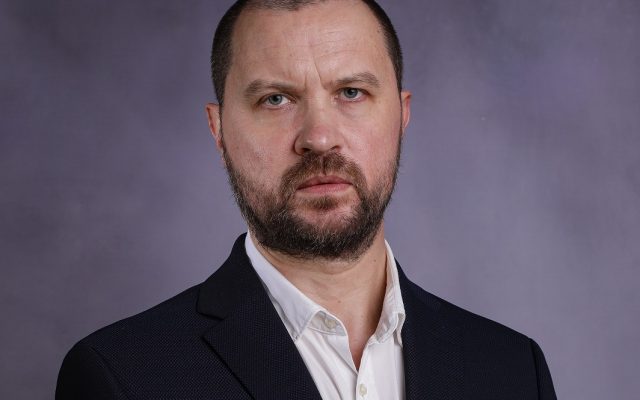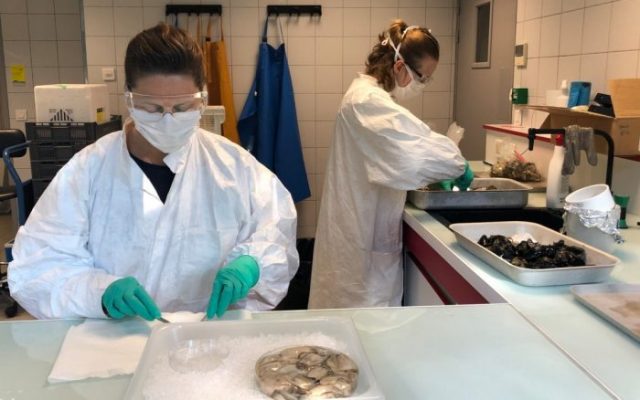
Romania’s 2020 elections dystopia: how a party once red flagged for graft uses corruption and underworld figures against electoral rivals as country leaders drop defenses on rule of law
Romania readies for local elections this weekend which are out of the ordinary not only because of the Covid-19 pandemic rules, but also for how the electoral campaign has been developing, to a point where a political dystopia becomes reality. A major political party long associated with corruption at the highest levels has now been trying to paint their own electoral rivals as corrupt people. With support of media outlets inviting web chat hostesses as political commentators, it describes them as being supported by shady figures of the Romanian underground clans. How has Romania gotten to this situation? Well, the authorities under the rule of President Klaus Iohannis have let their guard down on fighting corruption and defending the rule of law, with a key institution fighting graft now clinically dead.
The Social Democratic Party (PSD) has become synonymous with high level graft. It is formed of a network of local political leaders who have faced corruption accusations. Most of its top representatives of the past two decades have also faced charges and its two most notorious leaders even served time in jail under corruption charges – including the man who ruled the PSD with an iron fist until last year, Liviu Dragnea.
The PSD has been forced out of government in late 2019, but still holds major influence in the Parliament and controls the city halls of many a place across the country, including Bucharest. Now, its strongholds challenged, they themselves do their best to depict their electoral rivals, especially in Bucharest, as corrupt candidates and defenders of the underworld clans.
The PSD, with their supporters in the media – especially two TV news channels, Antena 3 and Romania TV – have focused their attacks especially on Nicusor Dan, the main candidate aiming to defeat PSD mayor Gabriela Firea in elections in Bucharest. Nicusor Dan is a mathematician turned NGO leader who first started efforts to block local authority abuses in the Capital city. He then turned to local administration and is now seen as a contender with real chances to bring down Firea.
But he once made the mistake to lend his support for someone who later proved to be a controversial businessman associated with underground networks, who had built a house and terrace in a park. Despite failing to provide any proof of dirty money being handed to Dan, the PSD has been forcing a campaign to depict him as a kingpin of clans and lawyer for the corrupt.
The party Dan helped establish, to be later removed as leader, then welcomed back as candidate for Bucharest city hall is the Save Romania Union (USR), formed several years ago. USR has once again become a target for PSD’s accusations of fraud after a young individual charged with cloning cards in the USD has described himself as a member of this group. Media outlets associated with the PSD forced the spread of video images about the case on social media.
A third case is that of a USD candidate for a Bucharest district, Ciprian Ciucu. PSD-allied TV outlets claimed he had the support of a well-known underground leader, who in fact turned out to deny any support for Ciucu and to admit spreading electoral messages at the request of another individual.
All these help PSD form a blanket attack claiming that the candidates of USR and the no-governing Liberals (PNL), who also support Dan for the Bucharest City Hall, are corrupt people about to bring in Mafia-style clans to rule the city.
That comes despite the PSD itself has leaders who have been openly associated with underground networks. So the PSD narrative goes into making no difference between candidates and they’d be all the same.
How did Romania get to this point?
The governing Liberals (PNL), the USR and their PLUS partners can no longer push the corruption theme against the PSD, which has been used heavily since the 2004 elections, because they don’t have any new argument. So far, statistical data showed clearly that a majority of corruption cases investigated by the National Anti-Corruption Department (DNA) and sanctioned by courts were related to PSD cases.
The reason was simple: the PSD had the most mayors and district council heads, but also the largest number of ministers and heads of institutional bodies, after serving for most of 2012-2019. But now, the DNA has stopped investigating high level corruption almost completely, since its former head, now top EU prosecutor Laura Codruta Kovesi left office. This summer, news circulated that the DNA prosecutors were investigating illegal boiled corn sellers on seaside beaches and police officers who received pizza as bribes in the city of Iasi.
This shows the signal sent by the Presidency when President Iohannis admitted top prosecutors for key investigative bodies early this year was well understood: no major scandal, everything is well, why so much corruption?
With the field now empty, the PSD tries to cover all corners and even attempts to use the weapons of its enemy. And this is the party which dismantled one of its branches because it was under full control of underground clans and which set all records for corruption sentences.
And it plays the moral card on a TV channel, Antena 3, controlled by a man sentenced for corruption, and on another, Romania TV, controlled by a man facing major corruption cases. And as a „civil society” representative, the debates there invite a video chat hostess turned protester against everything, from masks to 5G, while the National Audiovisual Council, the body due to force TV channels into compliance with the norms and laws, has been missing from the picture for years.
As the judiciary and the justice system are still affected by a wave of changes pushed by the PSD in 2017-2019, as key prosecutorial bodies are led by mediocre or politically dependent prosecutors, with a media controlled by oligarchs paid from public money by both the government and the city halls, the political discourse changes radically. The society slowly turn to the status quo of early 2000’s, from before Romania joined the EU, as corruption goes unpunished and dubious figures return to the front stage.
Article edited in English by Costin Ionescu. Original article in Romanian here
Urmărește mai jos producțiile video ale G4Media:

Donează lunar pentru susținerea proiectului G4Media
Donează suma dorită pentru susținerea proiectului G4Media
CONT LEI: RO89RZBR0000060019874867
Deschis la Raiffeisen BankCitește și...
© 2025 G4Media.ro - Toate drepturile rezervate
Acest site foloseşte cookie-uri.
Website găzduit de Presslabs.


4 comentarii